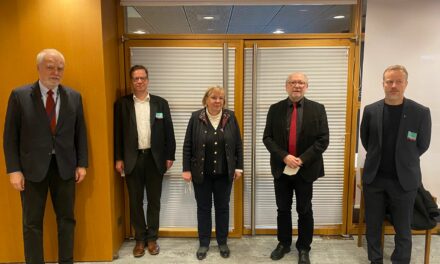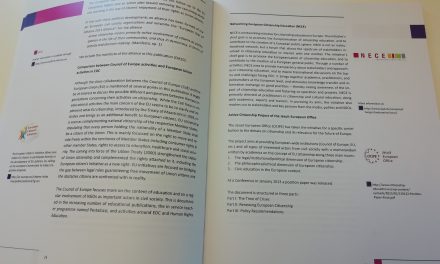Back to normal or forward to a more sustainable social life? A comment by Heid Leganger-Krogstad, ICCS President
The pandemic has forced an interrupted normality upon us all – for more than a year. This means that many people are longing for coming back to normality. The question is, however: Is it possible, and is it wise?
Children and young people have experienced that physical presence at school has a more significant role in their lives than they were aware of. Before the pandemic the digital revolution had often made young people believe that all sorts of media took care of the transfer of knowledge. All information ‘needed’ seemed to be available everywhere. When being forced to make use of digital tools during months of home schooling, these young people acknowledged more and more the difference between available information and knowledge. Most of them now understand more clearly the need for physical presence, the value of teachers who teach and lead the work on learning, and the need for social interaction with classmates. Being educated involves interaction in the classroom, and negotiations face to face is part of involvement and social development. For some, however, the pandemic has given room for slowing down and the digital education has made them concentrate and learn better.
Aristotle operates with a well-known three-folded concept of knowledge: episteme, techne and fronesis. Episteme – theoretical, scientific knowledge might be taught and learned in digital ways. Techne, practical knowledge, might partly also be learned via the computer, unless it involves learning to handle material tools like a hammer, a ball, skis, food or paint. Fronesis, practical wisdom, which involves moral and social education cannot be fully learned via the computer. Without the face-to-face interaction pupils miss the learning of social, emotional and intercultural skills in relation to people outside their own family. The pandemic has strengthened the relations in well-functioning families and has made life in disrupted families even more difficult. Young people need more than their own families to be able to grow as persons.
The pandemic has taught us that humans do not live independent individual lives. Humans live global intertwined lives. The teacher is in his/her profession trained to teach pupils fronesis to be able to live sustainable social lives that take care of our common planet.
Education in schools and churches ought not to go back to normal, but move forward by offering a future-oriented education, involving humans and consisting of threefold knowledge: episteme, techne and fronesis. This means both involvement face to face and via the digital means.





